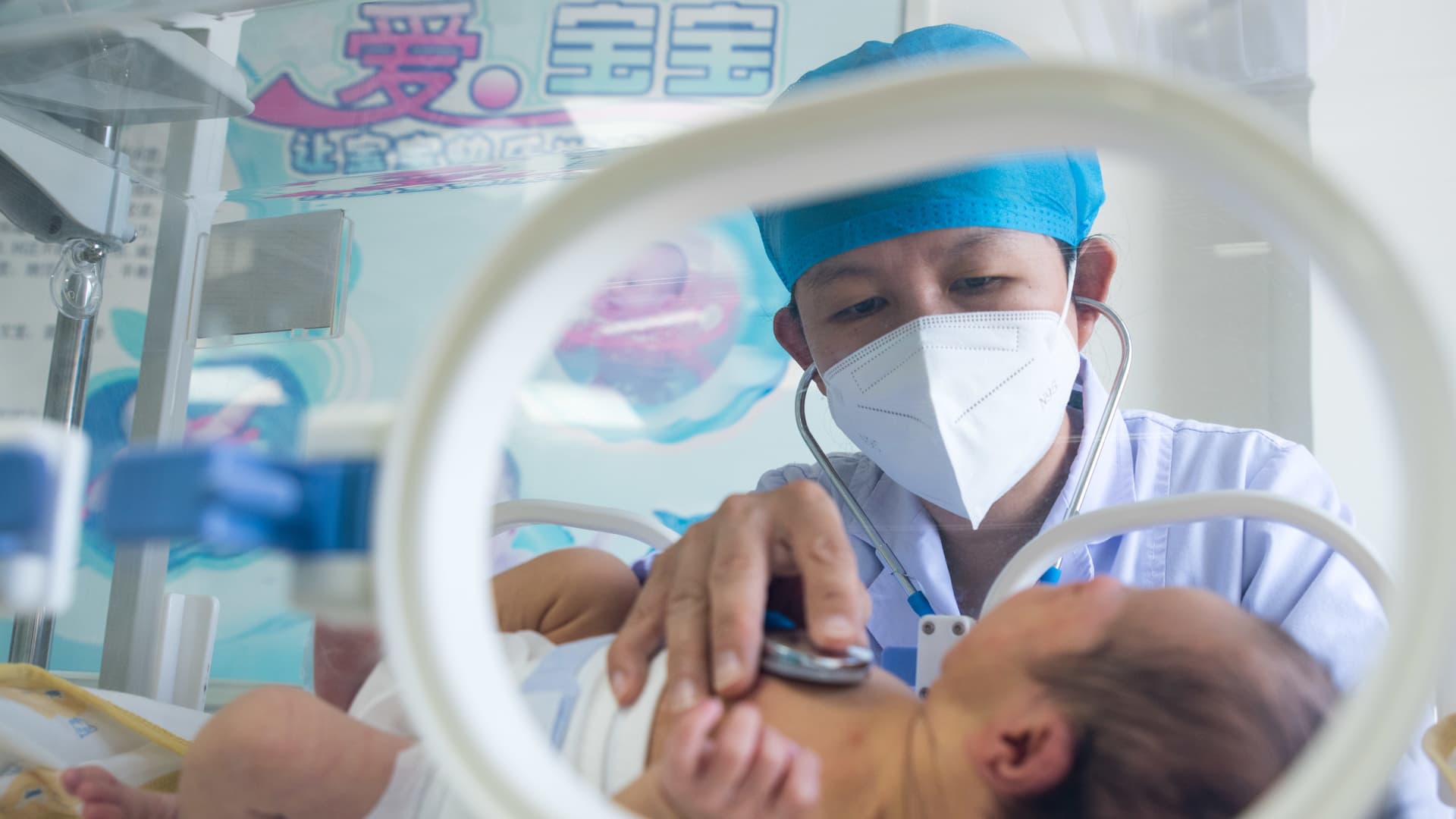
A nurse cares for a newborn child at a hospital of Traditional Chinese Medicine in Urumqi, Northwest China’s Xinjiang Uygur autonomous region, Aug 18, 2022. China’s National Health Commission said Covid-19 has contributed to the decline in the country’s marriage and birth rates that has accelerated in recent years due to the high costs of education and child-rearing.
CFOTO | Future Publishing | Getty Images
China’s National Health Commission said Covid-19 has contributed to the decline in the country’s marriage and birth rates that has accelerated in recent years due to the high costs of education and child-rearing.
Many women are continuing to delay their plans to marry or have children, it said, adding that rapid economic and social developments have led to “profound changes.”
Young people relocating to urban areas, more time spent on education and high-pressure working environments have also played their part, it added.
Demographers have also said that China’s uncompromising “zero-Covid” policy of promptly stamping out any outbreaks with strict controls on people’s lives may have caused profound, lasting damage on their desire to have children.
“The coronavirus has also had a clear impact on the marriage and childbirth arrangements of some people,” the commission said.
The comments were sent to Reuters via fax late on Monday in response to questions on the topic.
New births in China are set to fall to record lows this year, demographers say, with forecasts calling for a drop below 10 million compared to last year’s 10.6 million babies — a level 11.5% lower than in 2020.
China had a fertility rate of 1.16 in 2021, one of the lowest rates in the world and below the 2.1 rate the OECD sees as necessary for a stable population. Having imposed a one-child policy from 1980 to 2015, China has acknowledged its population is on brink of shrinking — a potential crisis that will test its ability to pay and care for its elderly.
To counter the problem, authorities at national and provincial levels have over the past year introduced measures such as tax breaks, longer maternity leave, enhanced medical insurance, housing subsidies and extra money for a third child.
